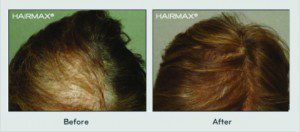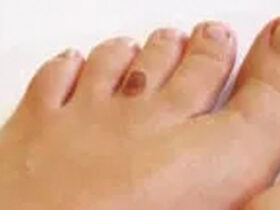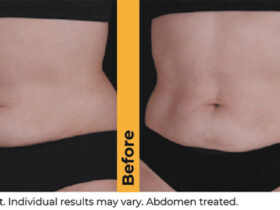By LaDonna Roye, Hairstylist –
 In 1967 a Hungarian scientist studying the use of lasers discovered that visible red light may stimulate hair growth. The hair on the backs of the mice was shaved in the area that was to receive treatment. One group of mice received laser treatments while the others did not. The hair within the shaven area grew back more quickly in the mice treated with laser.
In 1967 a Hungarian scientist studying the use of lasers discovered that visible red light may stimulate hair growth. The hair on the backs of the mice was shaved in the area that was to receive treatment. One group of mice received laser treatments while the others did not. The hair within the shaven area grew back more quickly in the mice treated with laser.
Used for many years in Europe, Low-Level Laser Therapy or LLLT, made its way to the US but until recently it was available only in hair replacement centers. Because it requires multiple weekly visits and appointments, it was not only expensive but also inconvenient.
Today effective, FDA approved, over–the-counter laser devices that do not require medical supervision are available for home use. The first device to be approved by the FDA was a hand held laser comb, more recently a completely “hands free” device has also been approved.
Get Thicker, Fuller, Healthier Looking Hair.
Laser hair therapy is the latest proven approach for treating a range of hair loss symptoms. If you are experiencing thinning hair, male or female pattern baldness, androgenetic alopecia, or problems associated with the scalp, you may be a candidate for laser hair therapy. Laser hair therapy is a non-invasive, proven and effective approach to treating the appearance of hair loss in men and women.
The type of laser light used to treat the appearance of hair loss is a low level or cold laser. “Cold laser” because it does not have the thermal component found in other types of lasers. Low-level laser therapy (AKA photo biotherapy) relies on soft low level light lasers. Low-level lasers are a preferred method for addressing androgenetic alopecia, the most common form of hair loss. Low-level laser treatment offers both men and women improved hair quality and density. By penetrating the scalp, low level lasers stimulate hair growth and improve the integrity of the hair itself.
Low-level Laser Treatment:
• Has been shown to increase blood supply to the scalp by over 50% after one session.
• Stimulates hair follicles.
• Stops the progression of hair loss in over 84% of patients.
• Increased hair strength and elasticity.
• Fuller, shinier, softer, thicker hair.
• Has been shown to be beneficial for hair
transplant patients for the healing process for newly transplanted hair.
• Repairs damage caused by chemical hair treatments.
Who May Benefit from LLLT?
Medical experts and hair loss specialists agree that treatment should be based on the correct diagnosis of its cause. These physicians and medical experts agree that LLLT is a highly viable option for growing hair in people afflicted with androgenetic alopecia-inherited male and female pattern hair loss. It is not intended to treat hair loss due to other factors such as people undergoing Chemotherapy.
In treating androgenetic alopecia physicians have found that LLLT is most effective in persons with minimal to moderate hair loss. Individual responses to LLLT differ, and results vary from person to person.
What is the Duration of Time for LLLT Treatment to be Effective?
Hair growth using LLLT is not a one-time ‘fix’ for hair loss. It must be repeated at intervals to maintain results. Typically 3 to 4 sessions per week for 15 to 25 minutes is the suggested treatment frequency, and results usually take about 4 to 6 months. Once hair growth is achieved, an ongoing ‘maintenance’ schedule of 1 to 2 sessions per week is strongly recommended to maintain new growth and keep the hair looking healthier, fuller, and more vibrant.
Is Low Level Laser Therapy Safe?
Yes. Low level laser therapy (LLLT) meets every international standard for safety and efficacy, and is classified as a class 3A cosmetic device.
LaDonna Roye Hairstylist
239-254-9100
12980 Tamiami Trail N #18 Naples, FL 34110
LaDonna Roye Hairstylist
Each of our hair replacement and hair loss treatment procedures is custom designed for every individual client’s needs, expectations and type of hair loss.
If you are experiencing the devastating effects of hair loss for any reason and would like to learn more about the latest treatment options that are available to you, please request a private, confidential consultation with a trained professional specialist.









